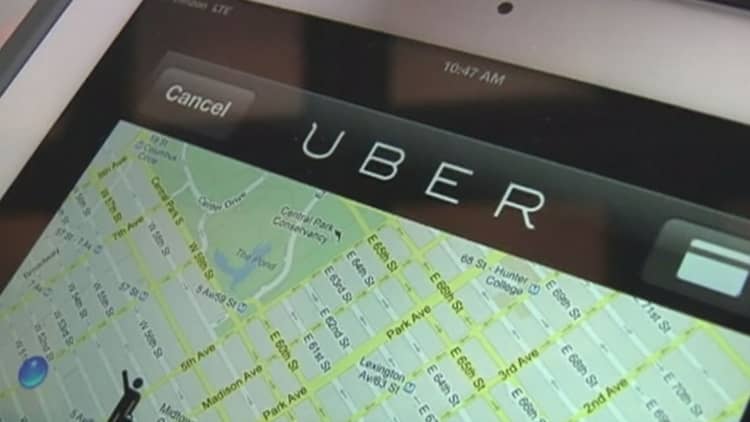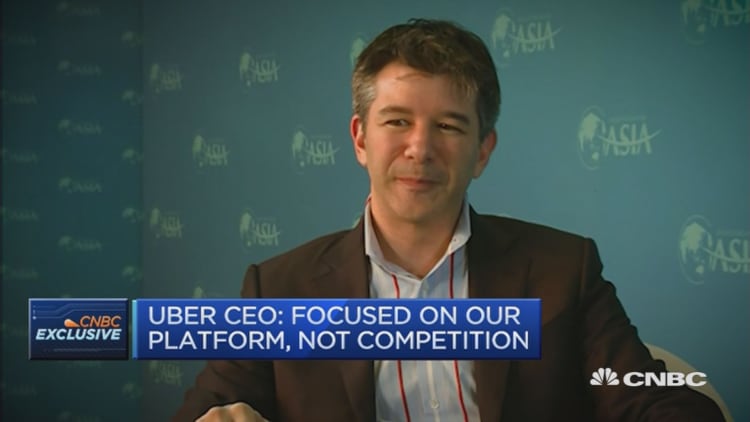
Uber has agreed to pay $100 million to settle a class action lawsuit in two U.S. states in a closely-watched case that could have threatened the taxi hailing app's business model.
The lawsuit revolved around whether Uber drivers in California and Massachusetts were classed as contractors or employees, in which case they would be entitled to other benefits, driving the taxi start-ups costs higher.
As part of the settlement, the two sides agreed that the drivers will remain contractors, not employees, a good result for Uber and one likely to be welcomed by others start-ups in the on-demand economy.
The $100 million settlement is made up of an $84 million payment to the roughly 385,000 drivers involved in the cases. A second payment of $16 million will be handed out if Uber goes public and the valuation of the company increases one and a half times from its December 2015 financing valuation with the first year of the initial public offering.
Uber is the world's most valuable private technology start-up worth over $62 billion.

"Importantly, the case is being settled — not decided," Shannon Liss-Riordan, the attorney representing the drivers in the suit, said in a statement.
"This case, however, with this significant payment of money, and attention that has been drawn to this issue, stands as a stern warning to companies who play fast and loose with classifying their work force as independent contractors," Ms. Liss-Riordan said.
Uber also agreed to change many of its terms and conditions for drivers as part of the settlement. The taxi app said it would:
- Provide drivers with more information about their individual ratings, which are chosen by the users, and how it compares to their peers.
- Fund the creation of a driver's association in California and Massachusetts and meet them quarterly to discuss "the issues that matter most to driver"
- Publish a "driver deactivation policy" which explains why some drivers are taken off and barred from the platform
- Agree not to deactivate drivers who regularly decline trips when they are logged onto an app. A driver gets a request for a job and it is their decision to accept or reject it. Previously a driver could face deactivation if they declined a certain amount of trips. Uber is loosening this policy
- Create an appeals process in both states for drivers who disagree with decisions about their account being deactivated
"Uber is a new way of working: it's about people having the freedom to start and stop work when they want, at the push of a button," Travis Kalanick, chief executive of Uber wrote in a blog post, late on Thursday.
"As we've grown we've gotten a lot right—but certainly not everything. This new deactivation policy is an important step forward when it comes to working with drivers."



